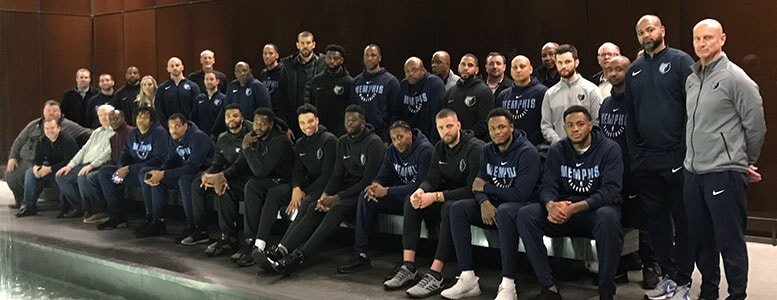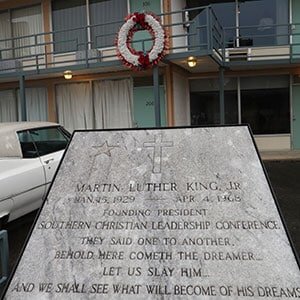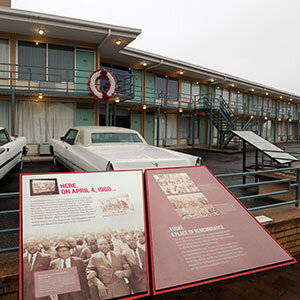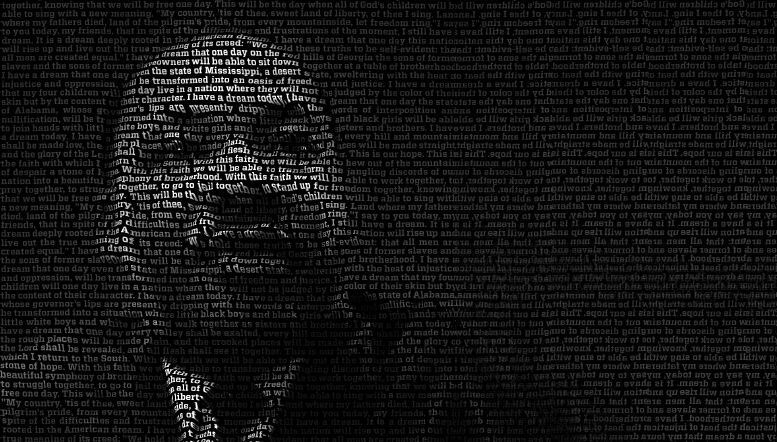By Michael Wallace
Grind City Media
MEMPHIS – Growing up in Alabama, Grizzlies forward JaMychal Green has heard or read stories about the life and enduring times of Dr. Martin Luther King, Jr. for as long as he can remember.
At times, King almost seemed like a superhero or some other fictional character for most kids like Green, who grew up decades after the Civil Rights Era of the 1950s and 1960s redefined the country. But the impact of King’s legacy didn’t personally resonate with Green until he reached high school.
Green vividly recalls the day, as a 10th-grader a decade ago at Montgomery’s St. Jude Educational Institute, when he learned that King and dozens of other Civil Rights activists had stayed on the school’s campus in preparation for the iconic Selma-to-Montgomery march in 1965.
“We were told how he spent some nights on our campus and stayed at our school,” Green, 27, reflected ahead of Monday’s matchup against the Lakers in the 16th Annual MLK Jr. Celebration Game at FedExForum. “Just knowing about that history, that’s when I started to learn more and more about it. So even back then, just being somewhere where you felt like you were in Dr. King’s presence, it was surreal. And coming here to play for Memphis, it’s even more surreal because this is where he lost his life. Right here. You still feel in his presence because of all he stood for. There’s still so much to learn.”
Perhaps no team is more intimately connected to King’s legacy and the impact of the Civil Rights Movement than the Grizzlies, whose partnership continues with the National Civil Rights Museum at the Lorraine Motel as the world commemorates the 50th anniversary of King’s death on April 4, 1968.
In addition to Monday’s game, events planned for the MLK50 Celebration feature the annual Sports Legacy Award presentations, social justice and community activism panels and National Civil Rights Museum tours for NBA and WNBA players, league legends and executives, including NBA commissioner Adam Silver and Players Association executive director Michele Roberts.
The festivities culminate on Monday’s national holiday that would have been King’s 89th birthday.
The Grizzlies are never far removed from the influence of King’s legacy. Both the church where King delivered his final sermon on April 3, 1968 and the Lorraine Motel balcony on which he was assassinated a day later are only blocks away from the franchise’s FedExForum headquarters.

In some ways, the buildup to the MLK50 Celebration began a month earlier for Memphis’ players, coaches and staffers, who visited the Smithsonian’s National Museum of African-American History and Culture in Washington before a Dec. 13 game against the Wizards.
During their 90-minute tour of the immaculate, year-old facility in the nation’s capital, the Grizzlies explored interactive artifacts, exhibits and stories that bridged the African-American existence from pre-slavery to modern social justice movements that impact today’s sports, music and cultural landscape.
“It was just dope to see all of our history and culture in one building, showing from the hard times, the uprisings to coming together as a people,” Grizzlies guard Mario Chalmers said. “But I’m a big music person, so I kind of snuck away to see the little hip-hop spot where it showed the New York scene, the spots where the jazz and stuff started, the beatbox and breakdancing. That was real cool to me, and I’ve got a lot of pictures and videos of that. It was one of the key things that stuck out to me.”
Chalmers said he’s always taken an interest in his historical roots. It started with the lessons learned from his father and grandfather, both of whom served in the military and experienced racism during the Civil Rights era and afterward. Chalmers said his curiosity with cultural studies increased even more once he took several history classes while attending the University of Kansas.
Taking pride in sharing a birthday with slain Civil Rights leader Malcolm X, Chalmers also appreciates how basketball has given him opportunities to visit historic landmarks. That includes repeated trips to Memphis’ Civil Rights museum and three invitations to the White House, twice while with the Miami Heat’s championship teams to meet Barack Obama, the nation’s first black president.
The magnitude of the moments leading to MLK50 isn’t lost on anyone.
“It definitely means a lot to me – a kid who grew up in Alaska, which is basically all the way on the other side of the world,” Chalmers said. “It’s just something important to always know where you come from and your heritage and what people fought for. And it means a lot to be here, in the heart of the city and right down the street from where MLK lost his life. We’re literally standing on the same blocks where he fought for us, and you feel honored to go out in this city and represent what he stood for.”
As center Marc Gasol reflects on the nation’s strides and struggles to come together, he also thinks about the issues in his native country as Catalonia pushes for political independence from Spain. The controversy has caused recent civil unrest in the region and could impact relations throughout Europe.
Gasol recently addressed the issue in Memphis and said there’s only one way toward progress.

“Just like anything in this life, you need to compromise and communicate,” Gasol said of the developments in Spain. “And the leaders of both parties should do a more responsible job of communicating. I think if we get extreme messages from both parties, I don’t think we’ll ever get anything out of it. We won’t come to a true compromise and it will be hard to repair down the line.”
Responsible leaders, Gasol said, find ways to compromise for the benefit of future generations.
“We need everyone to keep in mind how actions right now can affect the next generation’s lives and mindset moving forward,” Gasol added. “We don’t want anything like that to happen the next 40 years.”
Among the Grizzlies’ strengths as a team is the diversity of their roster. Players come from uniquely different backgrounds – from Gasol’s European heritage to Green’s deep-south roots to Tyreke Evans’ inner-city upbringing to Dillon Brooks’ Canadian descent.
The struggles the Grizzlies face during a tumultuous season have challenged them to communicate and find common ground. The mid-December trip to Washington came when the team had lost 15 of 16 games, faced key injuries and endured an abrupt coaching change. There has since been improvement as Memphis entered MLK50 Celebration Game weekend having split its last eight games.
Last month’s museum visit in Washington and Sunday’s trip back to the Lorraine Motel site offered a bit of a reprieve and some level of perspective outside of basketball challenges.
“When you look around, whether it’s at what Dr. King and them went through here or what we saw there (in Washington) and people had to overcome, it really makes you think,” guard James Ennis III said. “Because we didn’t live in that era, me and my teammates going there showed us what they went through and how mentally tough they had to be just to live in that environment and still do what they did every day. And they still had people against them, just trying to live their lives.”
Andrew Harrison tries to live his life following guidelines of King’s legacy. Injuries at the guard position have created more opportunities for Harrison on the court for the Grizzlies in recent weeks. Off the court, he’s having a significant impact as a mentor for young students at Grizzlies Prep school. Harrison also raised funds and awareness to help those impacted by floods in his Houston hometown.

“I wouldn’t say it’s something you think about every day,” Harrison said of living and working in the shadows of the Lorraine Motel. “But it’s definitely something you can see and you can feel and you know that something powerful – very bad but powerful – happened here. But something good came out of it with that museum still standing to teach the world about Dr. King and what Civil Rights are about.”
Those lessons involve harsh realities and triumphant breakthroughs.
Evans insisted he’ll never forget the exhibit he saw in the Washington museum of Emmett Till, the 14-year-old boy who was brutally murdered and disfigured in 1955 by white men in Mississippi for allegedly whistling at a white woman. Till’s actual casket is part of the display in the museum.
“That open casket, pictures of how his face was, that was different,” Evans said. “A number of things we’re always going to remember. For us to see that … we’ve got Marc from overseas and Dillon from Canada, and they might not have been exposed to things like that. So it was good for the team to go through it. We all have to take advantage and learn from it, and not just when it’s Black History Month.”
Each player spoke of how those lessons in history are bonding experiences. Nearly 50 years after MLK’s death, Green said he doesn’t take the sacrifices of the Civil Rights movement for granted as an athlete.
“What they did gave us the courage today to have freedom of speech, to not look over our shoulders and not have to worry as much about what people are going to say about how we feel,” Green said. “That’s the main thing for me; being able to feel free to say what we want and get our point across.”
The contents of this page have not been reviewed or endorsed by the Memphis Grizzlies. All opinions expressed by Michael Wallace are solely his own and do not reflect the opinions of the Memphis Grizzlies or its Basketball Operations staff, owners, parent companies, partners or sponsors. His sources are not known to the Memphis Grizzlies and he has no special access to information beyond the access and privileges that go along with being an NBA accredited member of the media.
